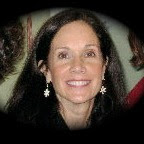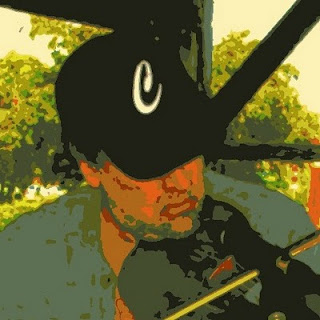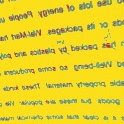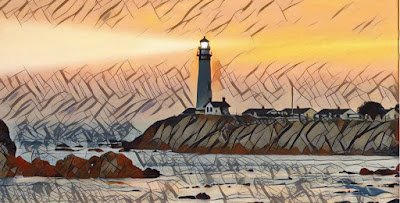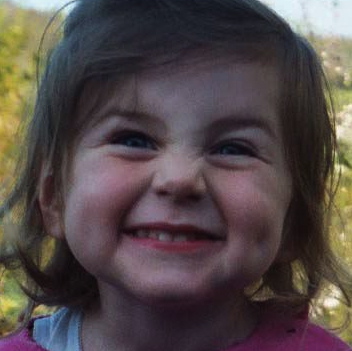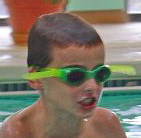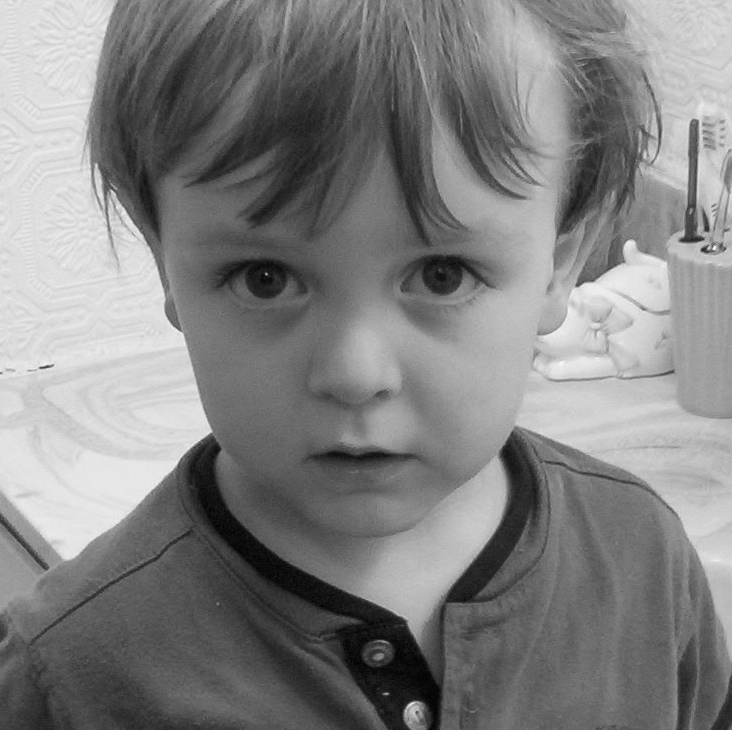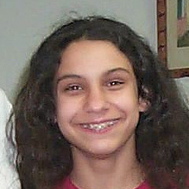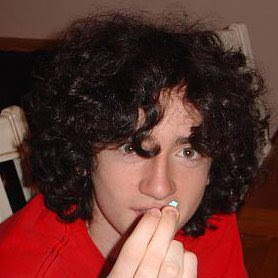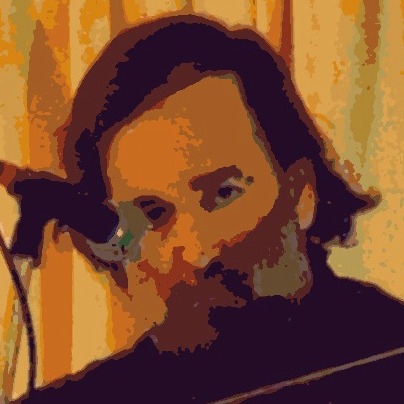Locking down with teens
Somebody asked me how we did it - as they were going nuts with a single fifteen-year-old, and I decided that yes, it's one one of the hardest things I've done. We have ten; the last four are still home, and are teens and tweens. They have each other, but that's not much solace. They are unusual in a number of ways. But in being totally stifled by lockdown, they are completely normal.
Teens are at a point where they need to see and relate to other people, and they most prefer other teens who they are comfortable with. They cannot control their strong urges to go out and socialize. They also cannot control the fact that they basically believe they are invincible, and such things as dying from a disease are totally abstract to them. They don't really have the tools to understand.
That's why, when they do go out, there is great risk. They may have the best intentions, but they are still going to come less than six feet from people, and forget their mask, etc. They know how to tell you they'll wear that mask every time, but that's because that's what you want to hear. That gets them what they want,
They have to rely on us to know what's really dangerous. Much as they will try to get what they want and need, if it's really going to kill them, it's you who is supposed to know that and protect them. Much as they see themselves as grown up, they still rely on us for that. So the bottom line is, if you don't think it's safe, don't let it happen.
I see it all as a compromise, with all four of them. One is eighteen, and has his mother's anxiety: he doesn't want to go out, even to get groceries, Our problem with him is that a deep depression from total lack of contact will set in. We don't want that. As authorities we could lock them all down totally, no contact, don't leave the house, but they would all go nuts and so would we. What good is surviving if you've all gone nuts? Better to compromise with each, and get maximum safety, and some margin of sanity. Maximum safety is limited contact. As few contacts as possible, in as safe an environment as possible, preferably outside.
For the fifteen and fourteen year olds, that means trusting a few best friends. The fifteen year old is a boy, wants to be in town every minute, has a best friend, wants to be with him. We let him. We know there will be other people involved. We have landed in a very small town and we are hoping the people around will also share our values, and it turns out most of them do. We go over with him, six feet, masks, as few as possible (he would go into Allsup's every five minutes if he had the money), etc.
So far we're free and clear.
The fourteen-year-old, a girl, lies like a fish. She also has a best friend and we believe that they are relatively safe. She is more in control of what she does, where she goes, how close she gets to people, that kind of stuff. But she wouldn't hesitate to tell us whatever we want to hear, or whatever gets her another day with her friend. As time went along parents got more and more nervous about sleepovers; we have been. And I make no guarantees to other parents. We are careful, yes. But we don't
really know what kinds of danger our kids have been in. And one of them will infect all of us, because at home we are all sharing the same air.
The last one is twelve, a chronic hugger, totally physical and heartbroken by the whole mess. She stays at home and mopes a lot. Her best friend's dad just had a kidney replacement so there's no sleepovers there, no hope for getting what a teen needs so much. She is spending a lot of time on zoom with a niece who is about her age, and watching a lot of movies. But she's miserable, no question. Lockdown is like prison to her, and it will affect her strongly for the rest of her life.
Teens are so critical. They look at their family situation and can now compare it to others, find it wanting, verbalize their criticisms, see some other horizons. Sometimes I think our main job is to keep their hope alive; this is certainly true for our oldest (at home) and youngest. But keeping
them alive comes first. What good is their hope if a brother or sister brings home the covid an we all go down? We are all lucky that we live out at the end of a mountain road, and that when they go for a walk, for example with the dog, there's nobody out there. The deer and elk don't have it. The mountain breeze is gentle, and when they come home, they're safe.
Courant, Paul. (2007, Nov. 4).
On being in bed with Google. Au Courant blog. Accessed 7-2020. http://paulcourant.net/2007/11/04/on-being-in-bed-with-google/.
I'm stumbling a little late into this discussion, but apparently University of Michigan made a deal with Google; Google digitizes lots of books for free; some people feel that our libraries should not be depending on big business to that degree. I was aware of this dispute but didn't really get involved in it. I don't even really have a strong opinion on it. But I agree that basically, things that get put online get saved, so, yes, to some degree it's inevitable. People need information. Information needs to be free.
My ancestor Lorenzo P. Reynolds, who wrote at the turn of the nineteenth century, was an author whose pamphlets have been digitized. If it wasn't for him, I wouldn't have stumbled upon it.
Labels: lp reynolds
Lorenzo P. Reynolds
Family legend has it that my great-great grandfather, Lorenzo P. Reynolds (1830-1920), wrote a pamphlet opposed to women's suffrage, and his daughter Julia, who would be my great grandmother, wrote "Silly man!" on the front of it. This pamphlet did not come to me, as part of a general file of his and Julia's momenta that I received upon my father's death. An 80-page, single spaced document called "The Story of My Life" was part of it, though, so I typed it out into a word document.
Lorenzo P. Reynolds, who was Treasurer of Hillsdale College, and who wrote the document in about 1917, had very interesting English. I am not sure if the typed version is the original (did they have typewriters in 1917, or, would he have had one?) but the language is clear and he has strong opinions about most things. His main thesis is that one Theological Professor, one Professor Dunn, ruined his life for no good reason. It makes you curious to hear the other side. But I don't have the other side; I just have this document.
So my first thought was that this poor grandfather of mine needs to have his story told. But it turns out that the University of Michigan digitized a number of his pamphlets, and put them on Amazon, so that's not necessary. In other words, he doesn't need
me to get his story out there, as large parts of it are out there already. But my document is interesting anyway for its personal account - the story of his children, and his personal life, and of pioneering in early 19th century Michigan.
The Univ. of Michigan paperbacks are plain, with no special covers, and the digitizers make it clear that they are being published for history's sake, in order to digitize and put out there important historical perspective, and things that contribute to the public understanding. One press, Palala Press, picked up one of the pamphlets (they are about 40 pages each),
The True Review, and published both a paperback and a hardback version. This I considered interesting, though I should probably not put Palala Press and University of Michigan in the same paragraph. I think Palala Press was a shill company, scooping all old documents whose copyright had been lost, in hopes that some would be interesting enough for people to buy. But they also put very plain covers on them; these books look like a thousand others that they have published. And, did they actually sell any? I'm not sure.
I have put together a little book using
The Story of My Life; this one will have a picture on the cover. I will write a foreword and I have just finished indexing it. In a way I feel guilty making any money on it, even though I typed out the entire document, and probably should get paid for that alone, or at least should be able to justify it. But I didn't
write it; he did, and he's long gone. I think he would be happy to see the book with a pretty little cover, and American Typewriter font, but opinionated as he was, I'm sure he would also have some problem with the process. I learned a lot in the process of typing it, proofreading it, and making the index (index-making is my new passion). I became steeped in 1917 language, though there were only eighty pages. I went and read his book about Hillsdale itself,
The City of Hillsdale, which is online, and full of pretty black-and-white photos of various buildings in the town.
That book, the 1915 version of
The City of Hillsdale, was probably his best work. It had started out as a directory, written by someone else (which had him in it, as an insurance broker), in 1898. That directory survived, and the 1915 version survived. But somehow it went from what was more like a phone book, with advertising, to more of a public relations pamphlet for the town. You would think, from reading it, that the little town was paradise.
The Story of My Life tells the story of betrayal: having his relatives' lives ruined by this Divinity professor; being run out of the Treasurer's office; being excommunicated by the church. In addition, various illnesses and calamities befell him, to the point that one would wonder if he was Job, and still had faith in his God. But he did, apparently, and lived to tell his tale.
I will provide more about this unusual tale as I come to it.
Labels: lp reynolds
Scottish Gaelic
Carrell, Severin. (2020, July 5).
Scottish politicians call for urgent action to stop Gaelic dying out,
The Guardian. Online. https://www.theguardian.com/uk-news/2020/jul/05/scottish-politicians-call-for-urgent-action-to-stop-gaelic-dying-out. Accessed 7-2020.
I plan on answering this call for several reasons.
One is that I have some Scottish heritage but I am barely in touch with it. About eight or nine generations ago, a couple of Scottish boys crossed over to Northern Ireland, and from there to Pennsylvania, and so, to make a long story short, my mother was a Wallace. Like most Scots in the US, they lost touch with their heritage. But when I hear Scottish music, I always feel like it's there for me. It is partly in respect to my mother's side and her family that I would pursue it.
Nationwide, there are millions of Scots like me, millions in Texas and New Mexico alone. I could start a kilt store, or sell bagpipes, but who would buy them? People are not aware of their heritage really, and I don't think I can make them that way.
I have always wanted to learn Scottish Gaelic, though, and it's a new day. It's a day when I don't have to go to those western hills and islands in order to use the language. Someday, I will get there, yes, and it will be good to hear it being used just in the course of one's daily life. But I live my life, and will have to keep living it, without meaningful chance to actually go and experience that. I can do it on zoom, and that will have to do.
So here's my plan: a weekly zoom meeting to encourage people to learn and keep and use Scottish Gaelic. It will be a one-room schoolhouse in the sense that some weeks it may have high-level learning going on, and beginners will have to just sit and listen. I haven't quite resolved that problem, but obviously, one way would be to keep the beginners' meeting separate. I will say that the purpose of the meeting should probably be more social than practical, in the sense that our first job will be to simply welcome everyone and encourage their study and use of the language. If they hear and understand but a few words each week, that's still better than nothing. And there's nothing stopping people from starting companion meetings that get more in depth.
I have a zoom account. I know that it's doable. My plan is to think it out, and then spring. Right now I'm thinking Saturday mornings (afternoon in UK).
Labels: languages, personal, scottish gaelic
Annals of Public Education IV
It's a new day, one in which your public school might not be safe. It is not their fault. I love the public schools, especially ours here in this village, but sometimes one has to face the facts.
I have raised ten children, and am down to the last three, who are 12, 14 and 15. The public schools have treated them and the other seven very well over the years; I have no complaint. The last few years of my teaching career I was a substitute in a nearby town and got a close look at public education and all its problems. One of them is that we have come to rely on them for moral education and abuse prevention, but that's not their fault either. In order to keep people safe, they instituted some procedures (if you have a fever, go home and stay home for 24 hours) and parents just had to live with those procedures. They instituted other procedures that protected students from the fact that society is armed to the teeth and there is virtually no way to keep an armed shooter out of the school under most circumstances.
But I digress. The present situation, where Trump/DeVos say "Go back to school" and the health experts say, "that's not safe!" or "you have to do x y & z before it's safe" places a burden on the schools that they will collapse under. You don't catch Trump/DeVos saying "We want your children to have the best education possible," and that's because they are not motivated by that, or don't care about that, or simply have other priorities. So, the bottom line is, if you want your kids (and yourself, by extension) to be safe, and you want them to have a good education, you're on your own.
The people who survive this pandemic are going to be the ones who take care of their families, by keeping them safe, and avoid public gatherings with enclosed ventilation systems. You cannot keep an asymptomatic transmitter out of a school building because, unlike the AK-47, you can't see the covid. You can
see the AK-47, and you
still can't keep
it out of the building. Parents who are smart will work on other systems fast, and should have two goals: keep your kids safe, and, give them a good education.
I have two pieces of good information. One is that zoom works. The other is that the one-room schoolhouse model works, too. Both will take a lot of adjustment and fine-tuning before they work well.
It's the boys who hate zoom the most. I have one who doesn't do so well on zoom. He also wouldn't do so well on parent-child home schooling. The school has done a pretty good job with him and I would love to send him back to school. There is
no way he could stay six feet from everyone and wear a mask. I will be the first to admit we have become soft about that kind of discipline, where a kid will actually sit still in an isolated chair and just do his work when he has to. But I know it can be done, because I've seen it. I know zoom can work, because I've seen that too.
I've spent the lockdown studying my pioneer ancestors. They learned about twenty times as much stuff (logic, Latin, geography, grammar, etc.) in about a twentieth of the time we spend, and here we are, sitting around arguing about whether it's worthwhile to teach cursive in what little time we have. We are down to the bare bones in mathematics, and it's because people don't understand "exponential growth" (particularly Trump, DeVos, & friends, and those who elected them), that we're in the pickle we're in. So we've had a number of problems with the system as it is, for many years, and that won't change. Even if we elect a Democrat immediately, it will take years to rebuild and the damage will be immeasurable in the meantime.
The pioneers followed several simple rules: Keep the kids busy so that they value education in the two winter weeks when they are snowed in and actually have time to engage in it. Second, get neighbors and bind together, so you get the best of collective skills of the community and you have a reasonable set of goals to set up when they are learning; and, third, cut your losses if you have to; if they refuse to learn, let them go out and work, or, let them live with their own consequences. A single room with all twelve grades
will work, and kids will learn how to chop wood, winterize, etc. in the process of taking care of their own site. The older will teach the younger. The community will all become more involved and notice what is being learned and taught.
So, to the question of "What should a single parent do?"(in the present situation) I would answer: Start here. If school is unsafe, you need to find another way. Find family to supervise. Find a community to share schooling. Find
some way to educate your kid and be safe. A kid can lose a few weeks while you get organized. But the covid is not going anywhere; on the contrary, it's getting worse. Your #1 priority is surviving, and education is right up there:
you need to find the best way to educate your kid in difficult circumstances.
To those who are concerned about abuse, I would answer: That wasn't the school's job in the first place. A community and family should watch out for its abused kids, yes. If the government has to step in and remove abused kids from their home, ok. But relying on the school to make sure that happened was probably a mistake to begin with anyway. Stop worrying about how those kids will get by. If you know some, worry about
them; get involved, do what you can. But don't use that as an excuse to prop up a school that can no longer do its job. The school is not a social service agency whose job it is to check on the welfare of every kid in a community every day. A school is a resource for learning and knowing what kids can learn at each level - and that's how we should use it.
There is one more possibility which I have been advocating for years. A large system of schooling + daycare, free for all parents, which would ensure that every kid is both safe and educated, would allow all parents to work, and would save a bundle in welfare payments for those parents who presently stay home because they have to care for their kids. This would be enormously expensive, though, and would have to be organized carefully. If the government is forcing people to go back to school
without regard for safety and
without stating that they care about the quality of the education, that doesn't bode well for enlarging the system and making sure that all kids are safe and well-educated, and fed, and given moral supervision, all year round. If people had simply aligned themselves behind Bernie we could have been talking about that, but Bernie couldn't even win the majority of Democrats, so I don't really believe this society is ready for it.
In order to start or run anything, we need a collective agreement. Almost a third of this country doesn't care what happens to the schools, and even the Congress didn't prevent DeVos from getting in there and dismantling them. It's we, the people, who are going to have to stand up for the education of our own children, in order to prevent this country from going down under the weight of the sheer ignorance that lack of education has engendered. We've had enough of that, even before this covid cleared out everyone who couldn't stay out of harm's way. And the covid is just getting started. I was a math teacher, and I know a little about exponential growth. Stay home and take care of yourself; it's getting worse, and we're in for a rough ride.
I want to make one more thing clear. I love the schools; I know them and love the people in them. If I still taught there, I don't know what I'd do. Teaching is an enormously gratifying occupation. But exposing yourself unnecessarily to fatal disease is a losing proposition. If the schools can get these teachers on zoom effectively, it's a win-win, but it may take a while to work. And some kids, like my own, just
need personal motivation, and aren't going to make it on zoom. I think there is hope here. We have the tools, we have the talent, we have the resources, and we have generations of knowing what is important for kids to learn. We are an inventive and innovative people, and the first step is getting in touch with what we
can do to solve this problem and make education useful and safe and even fun for everyone. Some kids are going to need special attention, yes. We the people need to speak up about what we want, and save the public school system, as we know it, so it will work for everyone,
and be safe.
Labels: public education
Annals of Public Education part III
I am outraged that a president would order everyone to go back to school, without providing the funds to make it possible. It's what they used to call an unfunded mandate, but it more strongly represents the gas chambers, in the sense that it's Russian roulette for older teachers, or older parents of school-aged children, like us. People are going to die here. The schools don't have a way to keep everyone safe, or deal with the inevitable infected student walking through the front door. By nature, schools are supposed to take these kids in during the day. When teachers, entire classrooms, and support staff are testing positive, what's supposed to happen?
I think there will be significant chaos, and it will take a few years before anyone gets a good education. I think that as half the parents turn to homeschooling, the quality of education may improve simply because of smaller class sizes, but the fear and disruption will play a heavy role and make it impossible for people to really concentrate. They are already worried about the gun situation. I think parents would have to be crazy to
want to put their kids into a situation like that.
So I have two possible solutions. The first is the one-room schoolhouse model. We live way out in the country and would actually be
better off if we didn't have to drive twenty miles in every day. There aren't many kids in this valley, but I'd be glad to take what there are, split duties with local parents, and start there. It's like homeschooling except you get the benefit of other parents' input and you as parents put significantly more time into it than we used to.
The other is to lean into online a little more. I could see grassroots online homeschooling actually
working - people teach on zoom, kids learn to learn on zoom, the best teachers rise to the top, everything happens online. We could actually do it now, and lots of people would be way better off. We would have to start fast, though. Many people are way behind, thinking we will all just go back in a month. We will
not all just go back in a month. We will not jump off a cliff either.
For many of us it's a life or death issue. I've got three still in school, but I'm 66 and not eager for them to bring home whatever the locals pick up from the Texas tourist trade. I think the schools do a pretty good job with the kids overall and I trust them in the big picture although I think their curriculum could probably be improved. But there is a definite value to having other good, responsible adults in their lives, so given the choice between my deciding what constitutes fifth grade math, and their deciding it, I think I'll stick with them. I'm busy. But if it's organized, I can help with the teaching. I think that parents in small groups have to start doing the organizing. We have to provide for our own. Those who think the government is just going to drop it in our laps, well, they used to, but they can't anymore. Not without threatening your life.
Labels: public education
in it for the long haul
It seems obvious to me, that at the very least Trump will be around until January, and the covid will ravage us for six months. There is no plan. There is not enough testing or contact tracing; we are running out of hospital beds in places like Arizona and Texas. I could be hopeful and say maybe it will all go away, but it won't. On the contrary, it will reach all those places where it hasn't reached, and it will ravage all it can ravage, and pretty soon everyone will be cxposed. It's just a matter of time.
In our little mountain zipcode, we still have zero. We find this astounding. And one thing that we've found is that people from the valley love it up here, and lots of them have motor homes. They can't go to Dallas or Disney World, so they're all coming up here. Lots of people lined up to take what little space there is in RV parks, and just park. Actually I would say that even the RV's aren't social distancing, they are less than six feet apart.
But take hope - in the same way the George Floyd demonstrations did not cause too much of a spike, this may not either, and the reason is that everyone is outside in the fresh summer air. Masks, yes, a few people wear masks, actually more and more, but I don't really think that makes much of a difference. Yes, they try to respect the store owners and wear them even when it's inconvenient. But what they really like is that they can travel and use their own bathroom. The safe are keeping their save zones isolated. And using lots of hand-san.
We are very very nervous about our teenagers. Sometimes they spend the night at friends' or have friends over. Football season is coming up; one wants to play. They practice outside, but does that help? When I was in high school kids that tacked other kids would spit on them. It was the way they played the game.
It's kind of like watching the news: it's contentious, it turns your stomach, and it makes you want to take care of business fast, before your luck runs out.
cornered by coronavirus
Hartocollis, Anemona (2020, July 3).
A Problem for College in the Fall: Reluctant Professors.
New York Times. Online. https://www.nytimes.com/2020/07/03/us/coronavirus-college-professors.html.
Apologies if the article is behind a paywall. It is representative of a specific time, today, July 3, when coronavirus cases are rising dramatically and cornering universities dramatically. I have worked in universities most of my life, and know how people think. Fall semseter is coming, and it's their image, their essence, their survival that is at stake.
But on the other hand, as numbers rise, slowly but surely, steadily, the picture looks worse and worse. The article is right: the professors are older, and more vulnerable, and have kids to take care of, and those kids might not be in school. Our kids for example will be home three out of five days in the week, and that's if we're lucky, and New Mexico doesn't get any worse. As Arizona and Texas' hospital populations, boiling over, spill over into our state, we think it
will get worse. But we are both retired now, and aren't forced to be physically present in any classroom.
We do have a son who was planning to attend New Mexico State this fall. And, we have a daughter who is a microbiology professor at the University of Kansas. She's embroiled in this dispute - according to her, people are yelling at each other in meetings. She thought she had an easy committee assignment, the Disabilities Committee, but it turns out to be the place where they give permission to people who are essentially trying to protect their own lives. Not a cushy assignment.
The professors are not stupid - there is FMLA, Family leave act, and lots of them are unionized - it would seem to me that those who are would marshall their unions' power to protect the lives of their members.
But in the end, it's a human thing. I don't think the schools can pull it off, and have a full-on, typical fall semester, with homecoming parade, football season, all of it. They just can't. They should cut their losses right now. Put absolutely everything online that
can be put online (maybe labs can't, or physical education, ok) - put everything else off until spring, lower standards somewhat to accommodate those who have serious trouble getting things online, and give up the dorms entirely. It's not a great option, but it beats the obvious impending disaster - that college dorms will almost inevitably become epicenters if they are allowed to open. It's irresponsible to let that happen. And as we get cornered into that decision, while the numbers are rising the way they are, there's only one direction this whole thing can go anyway.
This whole idea that more young people are getting it is still rather new. Some people feel that's good because it means the death rate has gone down; fewer young people die from it. But there are still two facts that won't go away: first, the young are giving it to their relatives, and second, the covid does permanent damage to
everybody and kills a fair number of the young anyway. The colleges can say, well, you just have to watch out for yourself, which is true, but they will be better off if they can say, we did everything we could to keep you safe, and allow you to get your education.
Haskell University was one of the first I know of to go online; I found that interesting. My daughter pointed that out as it is in Lawrence, right near the University of Kansas, and is highly regarded, though much smaller. Whatever the price, because some faculty will inevitably have trouble putting it online. But Kansas is one of what, forty-five states where cases are rising. Maybe they haven't overrun the ICU's yet, but that's coming. It's only July. And there is no downward trend, at least not now, July 3.
Hillsdale, part I
I recently finished transcribing an eighty-page, single-spaced autobiography of one of my great-great grandfathers. Whereas I have generally done most of my research on the Leveretts, father's father's fathers etc., this guy was my father's father's mother's father, an early pioneer in the state of Michigan. To make a long story short, he grew up, became Treasurer of Hillsdale College and one of its first students, and then his life was ruined by a theological professor who had it in for him.
My first reaction to it was that he was an extremely careful writer, who never used contractions, always kept it interesting, and had good sentence-style choices - a discipline that I badly need at this point. I review what he did with amazement that he could be so clear and careful about everything.
At the same time, he doesn't seem to answer the crucial questions:
why does this theological professor have it in for him? How could his career be so thoroughly destroyed, just because one man ran him out of there? What is
up with that?
I wrote Hillsdale College twice. I told them, if you want a real clear version of the history of the college, here you go. They are all about free speech and the open marketplace of ideas. I'm not sure if they're totally into some guy's bitter version of how the nineteenth century played out in the small town of Hillsdale, though. They should be, but they might not be. Anyway, they didn't even respond to my first e-mail. This could of course be a mistake. I have failed to respond to several emails in my life. And it's more likely to happen when you're busy, when there's a pandemic, or when you just simply don't know how to respond. I understand. But I'll stick with it. I'm not letting them off the hook.
Bitter as he is, my great-great grandfather will get his story out there.
Deep on the web, there is a very interesting book. He, Lorenzo Reynolds, wrote it. It's called "The City of Hillsdale" (1915?) and it's a classic example of early printing and typesetting. He has photographs of such things as each church, each city block, the college, that kind of thing. And they're good photographs, too. I'm beginning to think, it's a shame letting this stuff sit there on the web, deep on the web, and not bring it up to the surface somehow where people can have a new look at it. In terms of my family, it's probably the best published work out there, in terms of the print media (my sister makes killer cd's, though she's kind of out of the business). My brother wrote chess books. I gruel away at short stories and little books of meaningless drivel. But this guy, bitter as he was, wrote what was probably the best public relations for the town of Hillsdale ever printed (though thoroughly in and of its time, which was just moving into their own pandemic).
I think the college owes it to me to at least respond to my e-mail. I'm a writer, I can handle rejection. They don't have to print his bitter complaints. But they should at least
say something...
Labels: hillsdale


